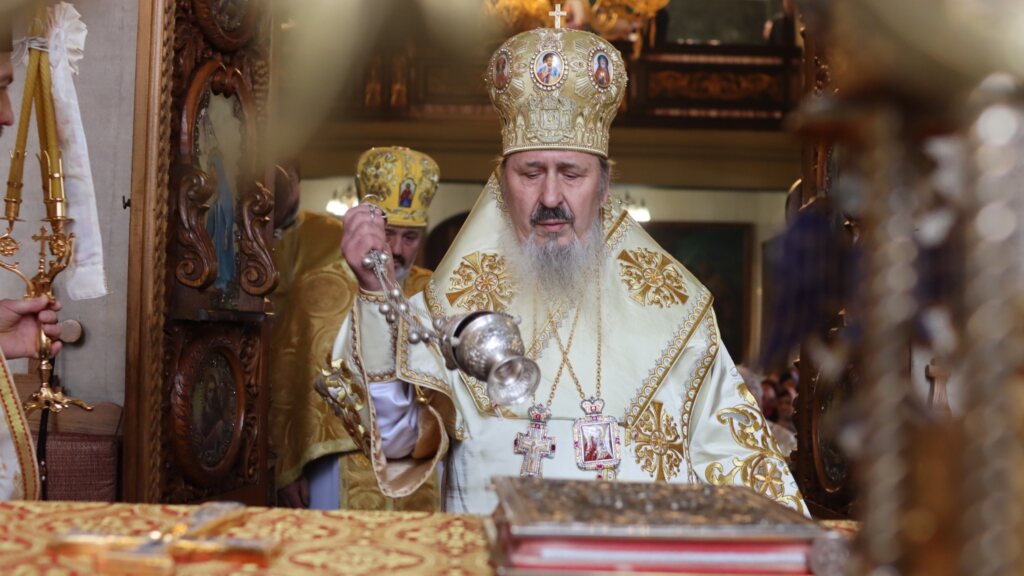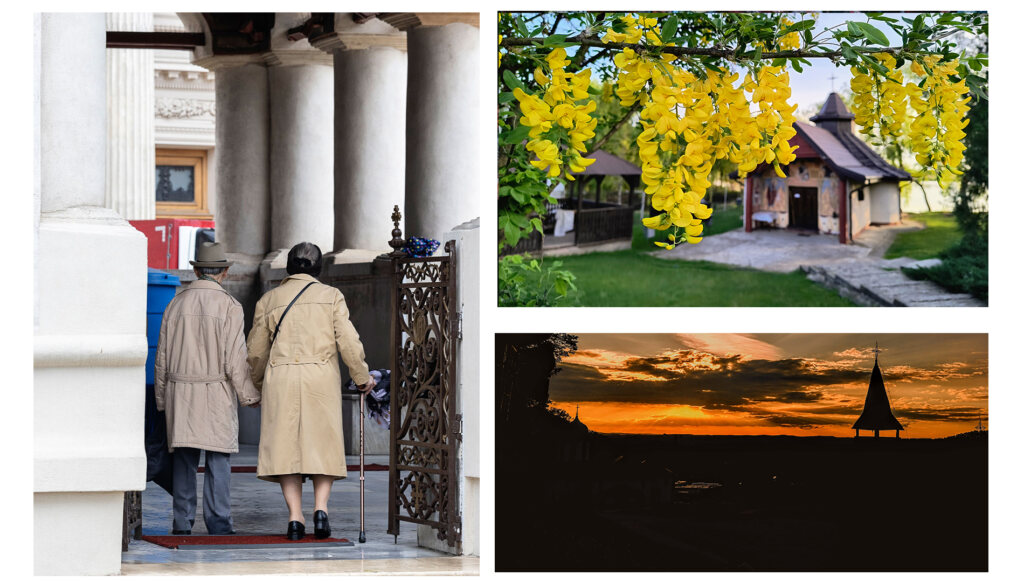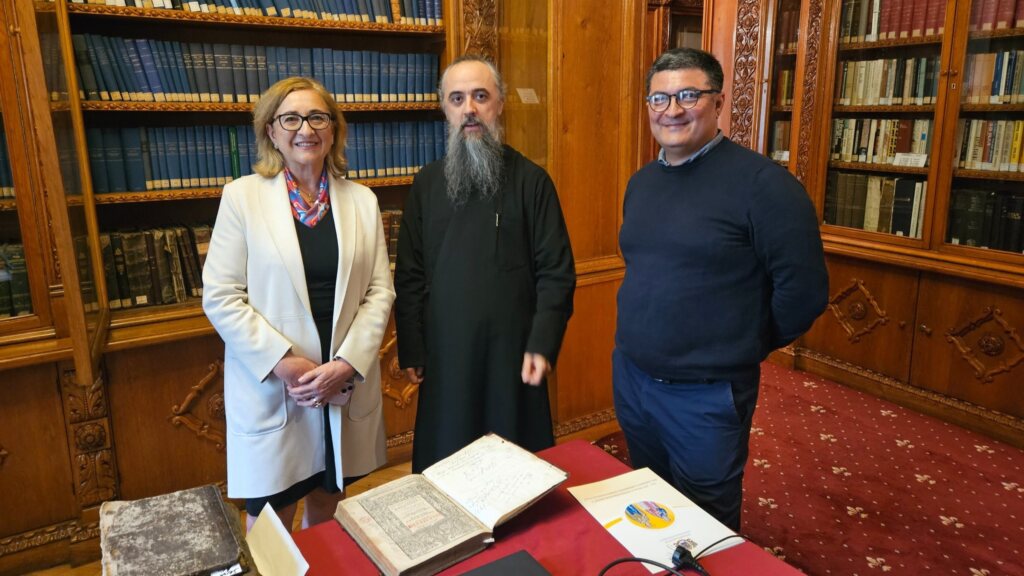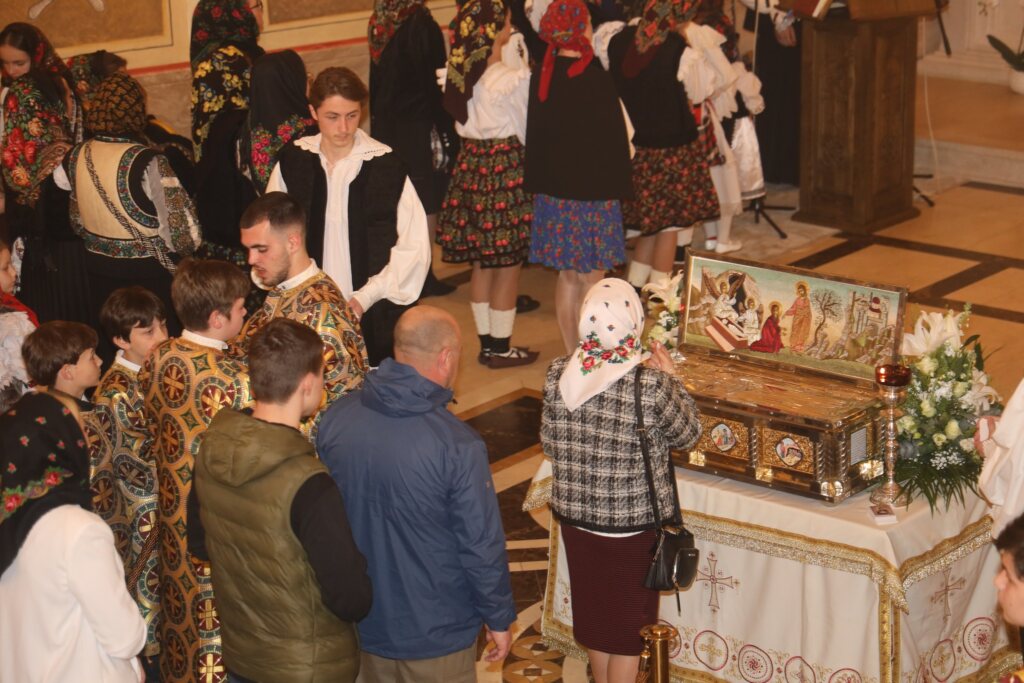At the end of 2020, His Grace Bishop Petroniu of Salaj became infected with the new coronavirus. His health quickly deteriorated, so he had to be hospitalized. After 37 days of hospitalization, he overcame the difficult period, but the disease’s traces can still be seen now, a few months away.
“During the night, I am still addicted to an oxygen concentrator. If during the day I have a too-busy schedule or I put more physical effort, and the oxygen saturation in my blood drops below 90%, I use the oxygen concentrator again,” says the bishop.
Blood oxygen saturation is one of the essential factors in monitoring a patient confirmed with SARS-CoV-2. Usually, problems occur when the saturation drops below 93% and when the pulse rises above 100.
Upon discharge, the doctors warned bishop Petroniu that his total recovery would be in a few months and that he would be dependent on medical technology for a while. “I was told that my lungs had not healed 100% and for at least two months, I would have to use an oxygen concentrator to ensure the saturation my body needed.”
His current health state allows him to carry out “any task that falls to him”, but certain seemingly mundane activities have become challenging.
“Although I move daily, for now, I can’t cover a long distance in one piece, but only in stages, with short breaks between them. But the touchstone is the stairs, which I climb a little slower than before, while my saturation decreases with each floor added, which means I still have to be patient.”
Bishop Petroniu was born on November 30, 1965, in Târgu-Mureş. On October 1, 2000, he was ordained to the Episcopate and appointed an auxiliary bishop to the Diocese of Oradea. Eight years later he became Bishop of Sălaj.
Near the “valley of the shadow of death”
The thirty-seven days spent in the hospital left their mark on the servant of the Lord, who lived the thrill of death. “My health was deteriorating more and more, the doctors who treated me were very reserved about my recovery, and I felt a few nights in a row that I was very close to the ‘valley of the shadow of death’” (Psalm 23: 4).
When physical pain is overwhelming, the fear of death makes its place easier in a person’s mind. The bishop found courage in the example of the righteous Job. “The fact that the devil cannot touch man’s life without God’s permission gave me the courage and made me trust in His will.”
“On another day the angels came to present themselves before the Lord, and Satan also came with them to present himself before him. And the Lord said to Satan, “Where have you come from?” Satan answered the Lord, “From roaming throughout the earth, going back and forth on it.” Then the Lord said to Satan, “Have you considered my servant Job? There is no one on earth like him; he is blameless and upright, a man who fears God and shuns evil. And he still maintains his integrity, though you incited me against him to ruin him without any reason.” “Skin for skin!” Satan replied. “A man will give all he has for his own life. But now stretch out your hand and strike his flesh and bones, and he will surely curse you to your face.” The Lord said to Satan, “Very well, then, he is in your hands; but you must spare his life.” So Satan went out from the presence of the Lord and afflicted Job with painful sores from the soles of his feet to the crown of his head.” (Job 2:1-7)
Hospitalization: I felt that I was getting weaker mentally
The time spent in the hospital made Bishop Petroniu realize how fragile the human being is and how vital is the care for the body. “Too often we don’t care about our health,” confessed the Bishop of Sălaj, recalling the delicate moments he went through, mostly while he was at ICU.
“The first week of intensive care, when the doctors did not give me good news about my health, and I felt this on my own skin, fearing a few times for my life, was the most difficult. Only faith in God, hope and constant prayer gave me the strength to overcome those moments.”
The time spent in the medical institution was a great opportunity for introspection. The four walls, the constant suffering and the picture of the disease contemplated daily in the hospital room represented a strong impetus for internal analysis. “Having a lot of time at my disposal, I did several thorough examinations of my conscience, regretting more deeply than ever the decisions in life that I consider to have been made wrong and, implicitly, their consequences.”
The last days of hospitalization came with a new challenge. Patience had weakened, medication had left its mark, and the urge to leave the hospital grew stronger.
“I could barely find the resources to withstand a long treatment, which I, a healthy man until then, was not used to. All the faith in God, the hope and the unceasing prayer, to which the plans for the future were added in the meantime (since my life was no longer in danger), gave me the strength to overcome those difficult moments”.
How can an infected person be helped?
After going through the experience of the disease, His Grace Bishop Petroniu is convinced that the attitude towards those suffering from Covid-19 must be one of compassion and understanding, because they are, after all, “innocent victims of a deadly virus that spread very quickly. on the surface of the whole earth.”
He does not believe that Romanians are irresponsible. Still, he is convinced that most of them became ill not because they did not respect the authorities’ hygiene measures, but because they have weaker immunity. He also has a gentle word for the negligent: “They must be accepted as they are, because you do not scold the sick man, but advise him, take care of him and help him.”
Those infected must understand the risks they are exposed to and the risks they subject others to. And our role, says Bishop Petroniu, is to make them aware of the danger and send them to the doctor urgently.
Then, prayer for the sick, but also acts of almsgiving are essential, says His Grace.
“If they do not have material possibilities, and we can afford it, it is good to buy the medicines recommended by the doctor. If they are hospitalized and have no one to take care of their family, let us do it. Also, after they have been discharged from the hospital and are in the recovery period, it is good to visit them at home and procure what they need if they are in need or unable to leave their home due to the disease’s consequences they suffered from.”
We asked Bishop Petroniu what changed the pandemic in our lives. The answer referred very much to the spiritual side.
“This relentless virus has taught us how fragile and vulnerable we humans are, while the planet’s flora and fauna have nothing to suffer. This coronavirus makes us increase our faith in God and put our hope in His help, without fear of anything, as stated by the psalmist David: “The Lord is my light and my salvation—whom shall I fear? The Lord is the stronghold of my life—of whom shall I be afraid?” (Psalm 27: 1).”
In a future article, His Grace Bishop Petroniu will describe the days spent in the hospital, the feelings and challenges he went through. We thank him for his openness and kindness to tell us about a delicate period in his life.
Photography courtesy of Radio Renaşterea
Follow us on Twitter: @BasilicaNews






